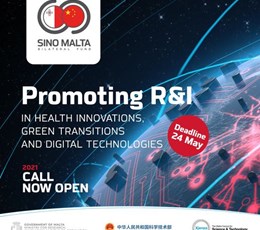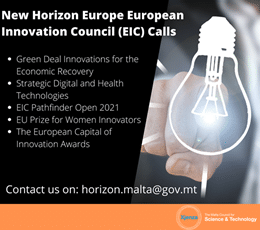As Thailand is one of the leaders in South-East Asia region in terms of renewable energy solutions, especially connected to solar power, but also to biomass and hydropower, its market attracts cleantech companies from over the world. Given Thai government’s ambitious plan of achieving a 25% energy consumption from renewable energy sources by 2021[1], and the fact Thailand’s energy consumption is predicted to jump by 75% over next two decades[2], Thai cleantech market is expected to offer promising opportunities for European SMEs whose top-notch technology is especially sought after.
Because of the abundance of renewable energy sources, including sun, hydropower, and biomass, the country could become a true renewable energy powerhouse. Cleantech companies focused on solar energy, biosphere alternative energy systems, energy conservation and efficiency can find promising business opportunities in Thailand because these areas are also receiving the lion’s share of Thai government’s investments on renewable energy.
European cleantech companies should, however, pay attention to protecting their IP rights when planning their business strategy for the Thai market, because IP infringements are still relatively common in the country. Furthermore, cleantech industry tends to have high level of collaboration and licensing which make IP ownership the centerpiece of the business strategy. Well-managed IP is often a key factor for business success and neglecting to register IP rights in Thailand could easily end SMEs’ business endeavor in the country. Thus, a robust and integrated IPR strategy is needed, when entering Thailand’s market.
Patents – valuable means of IP protection in cleantech industry
Patent protection is perhaps the most common form of IP protection in the cleantech space. This is because many clean technologies are capital-intensive and take a long time to achieve market acceptance, especially for those that are currently too expensive to be commercially viable. As a result, cleantech investors often demand patent protection as a way of securing monopoly profits. Having a cleantech patent portfolio can bring other tangible business benefits such as stability, credibility, and increased valuation, access to investment and financing and availability of defensive patent strategies (i.e. the strategy of filing patents directed at using them primarily to block competitors from using similar technology).
A fundamental question facing cleantech businesses is when to file for a patent. When a new invention is developed, it can often be difficult to predict the direction in which the technology will develop, as well as shifts in market trends. Filing too early may result in a patent that is not directed at how the technology is developing several years later. However, filing too late can risk someone else filing a patent for the same invention, or risk losing patentability if the secrecy of the invention is lost as Thailand patent system functions under the absolute novelty rules and also under the ‘first-to-file rules’, meaning that the first person to apply for the patent will have the rights over the patent. Oftentimes cleantech companies will at first file a few patent applications for the core aspects of their technology and then will file over time subsequent patent applications for the improvements and changes.
Inventions need to be new, involve an inventive step and be industrially applicable (this means capable of industrial production) to be granted an invention patent in Thailand. Invention patents are valid for 20 years after the filing date. Cleantech companies who need to consider when to apply for a patent in Thailand should also keep in mind that obtaining a patent can take 5-6 years.
Thailand is a member of the Paris Convention and the Patent Cooperation Treaty (PCT), which means that applicants for patents are entitled to a ‘right of priority’ (i.e. the same filing date the original application made in the home country can be used in Thailand), if the same filing is made in Thailand within 12 months from the first filing in any other country that also belongs to the Paris Convention. In using the PCT Route, the same filing must be made in Thailand within 30 months from the first filed application.
In cleanthech industry, an incremental and seemingly narrow improvement to an already established technology may oftentimes provide an important and enabling solution having significant commercial value and thus SMEs should not forget to obtain patents around improvements.
In case the improvements would not qualify for an invention patent, it is also possible to apply for a petty patent, which does not require the inventive step. Petty patents last for 6 years from the filing date in Thailand, and are extendible twice for 2 more years (i.e. maximum term of 10 years). Petty patents are generally easier to grant and they can be obtained faster than standard invention patents (within 3-5 years).
Trade Secrets
Cleantech businesses will often need to decide whether to protect inventions as patents or keep them as trade secrets and know-how. Inventions that are protected by patents become public knowledge, which can allow competitors to refine, design-around, or re-invent the technology so that it can no longer be protected by the patent. Cleantech inventions with a commercial shelf-life of significantly longer than 20 years could be considered for trade secret protection, given that it would be rather difficult to recreate the invention by using reverse engineering.
Trade secrets do not require registration and are protected under Thai IP laws as long as appropriate measures are taken to protect the confidentiality of the information. These measures may include limiting the number of employees exposed to the critical know-how, restricting employees’ access to confidential information and using non-disclosure clauses in employment contracts to avoid making trade secrets public.
Companies are recommended to include confidentiality clauses within employee contracts covering not only the duration of employment, but if possible, even after the employee has left. It should also be of paramount importance to ensure that confidentiality agreements are signed with business partners whenever disclosing confidential information.
Don’t forget to also protect your Brand
SMEs engaged in cleantech industry should not underestimate the role of trade marks as public perception and branding play an important role in marketing environment-related products. Energy policy can often-times be an emotionally charged issue and thus adoption of new technologies depends heavily on positive branding strategies.
Once the company has managed to build up a successful brand, it can be costly if infringers try to profit from the success of it by adopting an identical or a similar trade mark. Similarly, it can be damaging to company’s reputation if unscrupulous entities would use a similar or an identical brand to provide substandard products, as it could directly translate into loss of clients’ confidence in the original producer.
In Thailand, a trade mark may be composed of a photograph, drawing, device, brand, name, word, text, letter, numeral, signature, combination of colors, figure or shape of an object, sound, or any combination thereof. SMEs should keep in mind that Thailand adopts the ‘first-to-file’ system, meaning that the first person to register a trade mark owns that mark and therefore, it is recommended to register the trade mark as early as possible.
Trade marks are registered at the Department of Intellectual Property of the Ministry of Commerce and registration costs between EUR 50 and EUR 420 for one class, depending on how many items of goods and services are registered and if an agent is needed to handle the filings. SMEs should bear in mind that they need to be represented by an agent when registering trade mark in Thailand. SMEs should also be aware that trade mark application form and other required documents must be submitted in the Thai language or accompanied by a Thai translation.
As the registration of a trade mark in original Roman characters does not automatically protect the trade mark against the use or registration of the same or similar trade mark written in local Thai script, it is highly advisable to additionally register a version of your trade mark also in Thai script. Furthermore, if there is no existing name for SME’s brand in Thai script, it is possible that one will be adopted by local consumers either by way of translation or by transliteration, and not necessarily with the right connotations or image that the SME would wish to convey.
As Thai script has its unique characteristics, therefore, SMEs’ local equivalent trade mark should be carefully developed with the help and guidance of trade mark, marketing and PR experts, as well as native speakers and translators.
Helika Jurgenson
South-East Asia IPR SME Helpdesk
The South-East Asia IPR SME Helpdesk supports small and medium sized enterprises (SMEs) from European Union (EU) member states to protect and enforce their Intellectual Property Rights (IPR) in or relating to South-East Asian countries, through the provision of free information and services. The Helpdesk provides jargon-free, first-line, confidential advice on intellectual property and related issues, along with training events, materials and online resources. Individual SMEs and SME intermediaries can submit their IPR queries via email (question@southeastasia-iprhelpdesk.eu) and gain access to a panel of experts, in order to receive free and confidential first-line advice within 3 working days.
The South-East Asia IPR SME Helpdesk is co-funded by the European Union.
To learn more about the South-East Asia IPR SME Helpdesk and any aspect of intellectual property rights in South-East Asia, please visit our online portal at https://www.ipr-hub.eu/.
[1] The 10-Year Alternative Energy Development Plan: https://weben.dede.go.th/webmax/content/10-year-alternative-energy-development-plan
[2] The Platform for Renewable Energies: https://www.sunwindenergy.com/review/understanding-thai-renewable-energy-market









